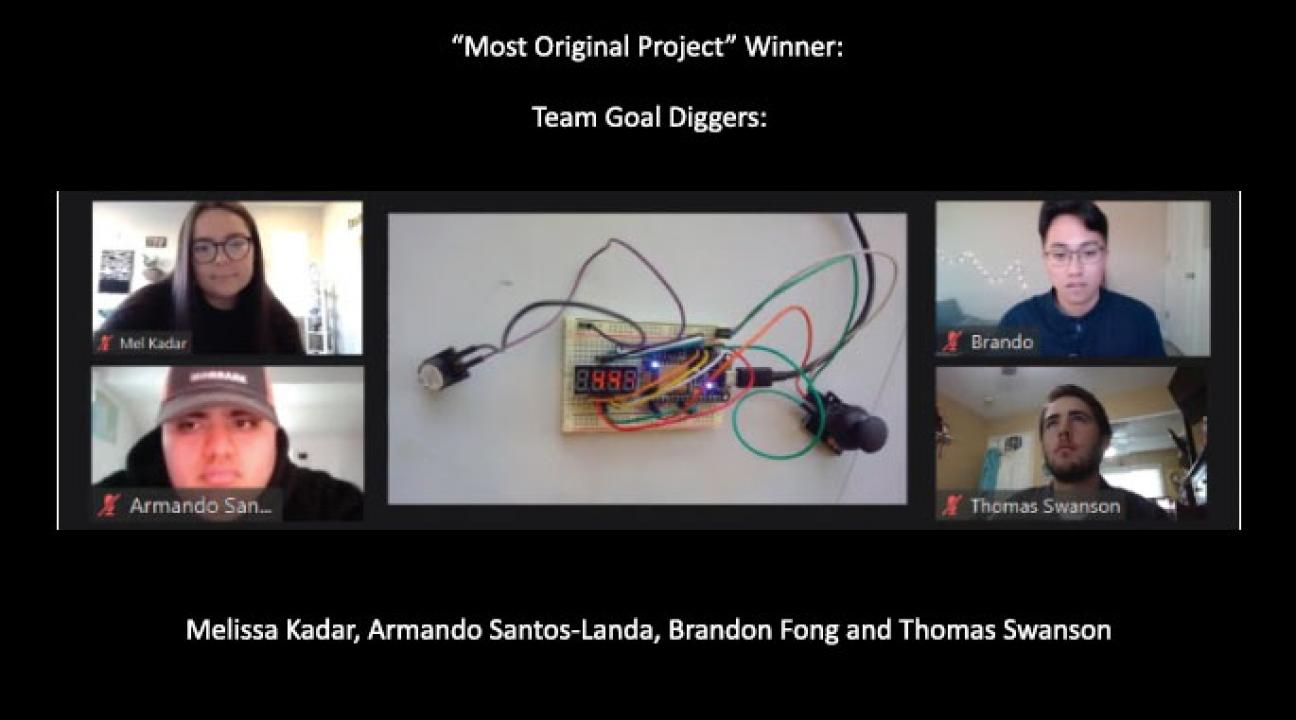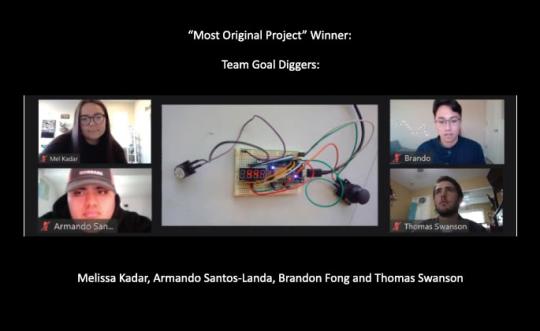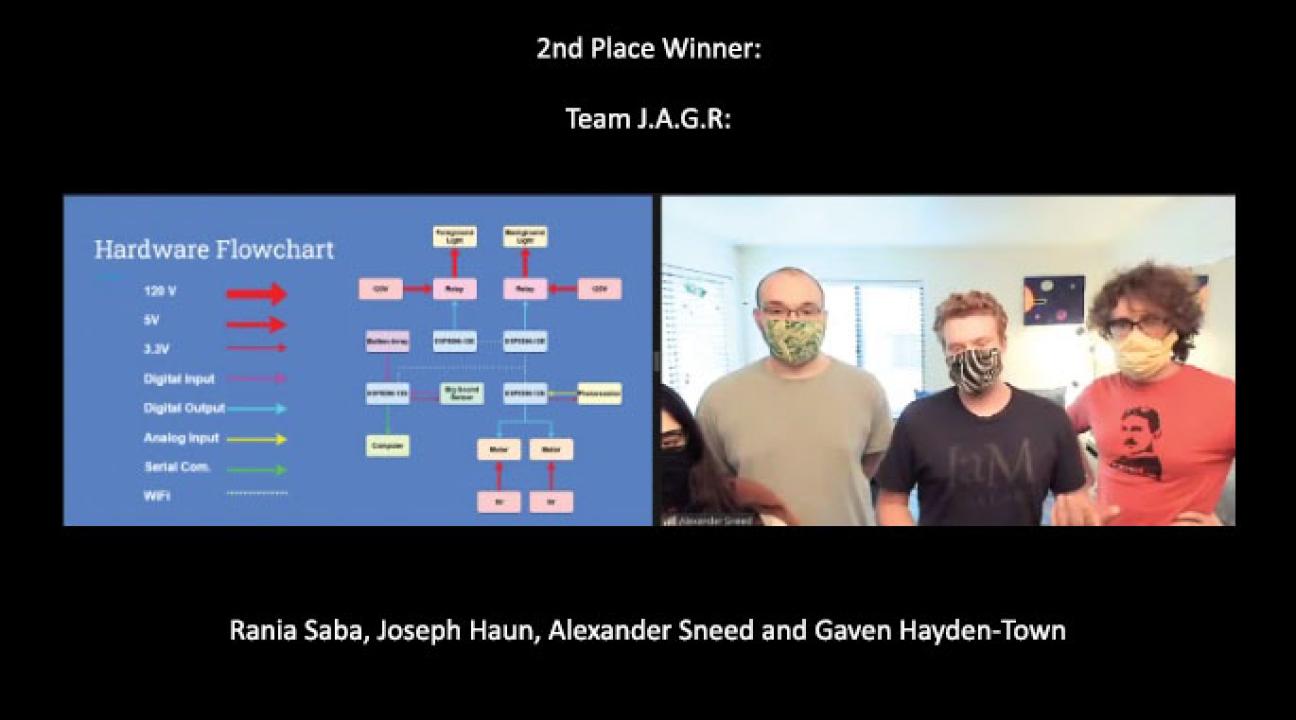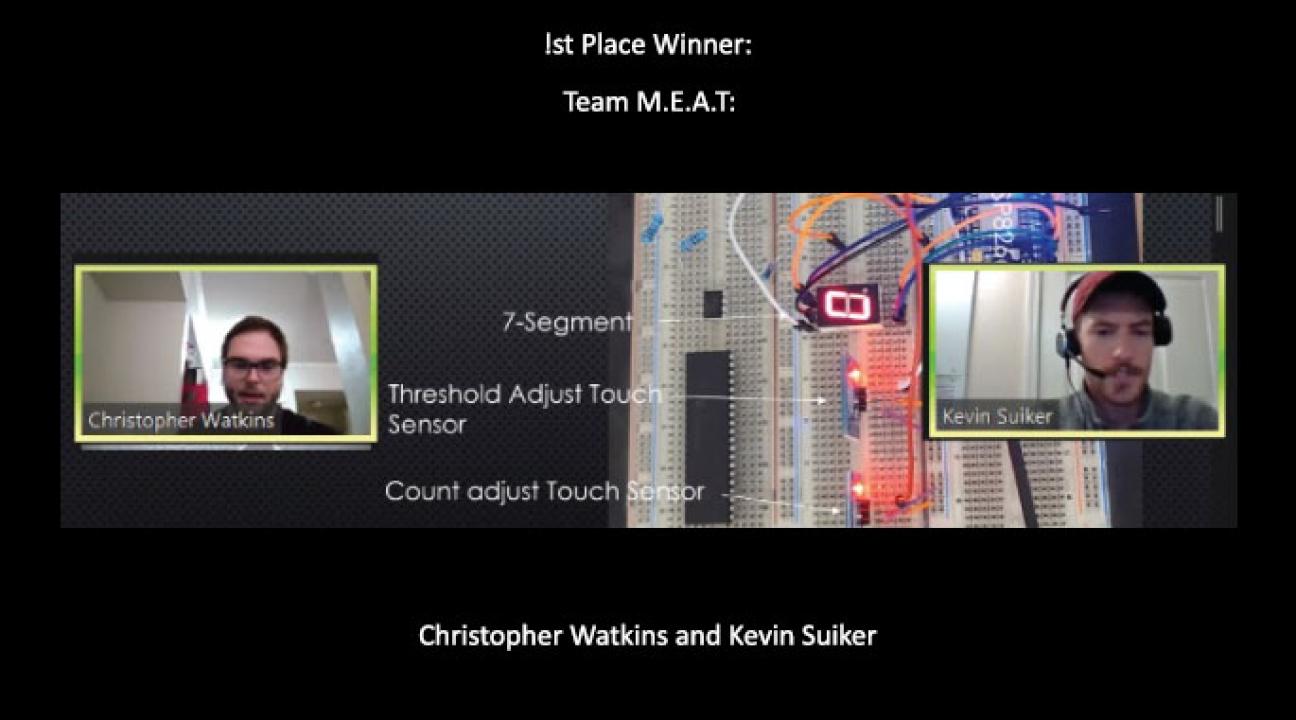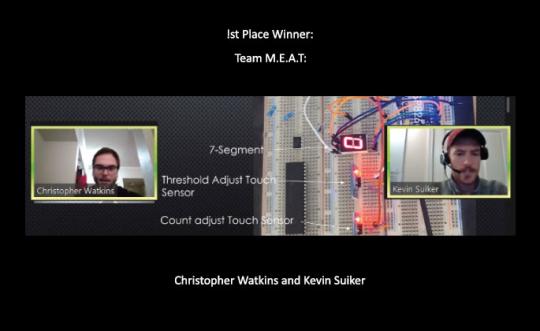2020 Virtual Engineering Hackathon
The first Virtual Engineering Hackathon at Sonoma State University pulled together 25 students from different majors, including Electrical Engineering, Business, and Computer Science. This year’s Hackathon gave students a unique opportunity to collaborate remotely via Zoom and merge their creative ideas with their technical and soft skills. Each team’s goal was to build something new, innovative, and practical with the provided hardware (30 sensors and a microcontroller) and available open source software.
The event started on Friday, 10/23, evening with a simple open-ended challenge: "What can you build that can benefit our community during the pandemic?" The teams had 48 hours to ideate, prototype, prepare their pitch, and get ready for their final remote presentation and demonstration over Zoom. The Hackathon was both intense and exciting!
The teams were competing for the $500 first place prize. The judges were accomplished professionals from high tech companies like Keysight Technologies, Roku, Analog Devices, Anritsu, STMicroelectronics, Strategy of Things, Dynatex International, and Pocket Radar. The judges reviewed each team’s progress on Slack workspace, video-called the hackers, and answered students' technical questions by posting notes and data sheets in each team’s Slack channel! (Slack is a messaging platform that allows teams to share the same view.) Although all the students were very familiar with Zoom, most of them had to quickly master Slack, learn the hardware and its programming environment, and get to know their peers from other disciplines in a virtual setting.
The judges were clearly impressed by the projects and the high level of student engagement. For example, Leyla Hashemi, R&D Engineering Manager at Keysight Technologies, said she was "inspired to see so many creative minds working together despite the challenges of being remote." Hashemi also observed that students’ solutions addressed "important global and local concerns" and that "the collaboration between business and engineering students was enlightening, which indeed resulted in well-rounded presentations and more marketable designs."
"The event was well organized and the process executed smoothly. I'm so impressed by the students for their innovation, achievement, and dedication to the community," commented Allen Ren from STMicroelectronics in Silicon Valley.
Anritsu Electrical & Electronic Manufacturing’s Robert Lou said, "I’m very impressed with the work the students have done in such a short period and under such challenging conditions."
"The 2020 Engineering Hackathon at SSU would have been impressive enough under normal circumstances. But the fact that seven teams pulled off projects as complete and well-thought out as they did, under the constraints of COVID-19 restrictions, and the threat of wildfires and power outages, makes the event that much more impressive. I was particularly struck by the multidisciplinary nature of the projects," noted Mark Thoren, Staff Scientist at Analog Devices.
The Hackathon proved to be a great experience for the participating students. "Given the current circumstances this was a great opportunity to get involved with. Having constraints of a defined set of hardware and a deadline of 48 hours really pushed the bounds of creativity to come up with something unique that solved a relevant problem. While it had to be completely online it still provided a social aspect through Zoom and Slack that allowed us to interact with our classmates who we only hear occasionally on the phone," noted Kevin Suiker, a graduate student in the engineering program at SSU. Another engineering graduate student Brandon Fong commented, "I really enjoyed working with a diverse team because it opens your eyes to different perspectives."
"I have really enjoyed being part of this experience and was glad it was opened up to include different disciplines. My team members made sure I understood the concepts and goals we were trying to reach with the devices and I was able to give some pointers on presenting a product and what things to pay attention to. Overall, I think we had a really fun time with this project!!" pointed out Melissa Kadar, an undergraduate business administration, and the President of Associated Students of Sonoma State University.
"I appreciated the Hackathon because it gave me an opportunity to speak with people who have been in my shoes and have real-world experience. I really liked how the Hackathon was set up so that I was able to have conversations with those who are in the field I am looking to pursue," expressed Nathan Candler, an undergraduate engineering student.
"Chris Stewart has served as the catalyst of the growth in interdisciplinary experiential learning programs through his relentless dedication to our students and academic programs over the past ten years", said Sergio Canavati, the business administration department chair.
"The event could not have been possible without the grant from Keysight Technologies," said Farid Farahmand, Chair of the Engineering Department. "We are also grateful to the School of Business and Economics for providing the funding for first, second, and third place awards," Farahmand added.


